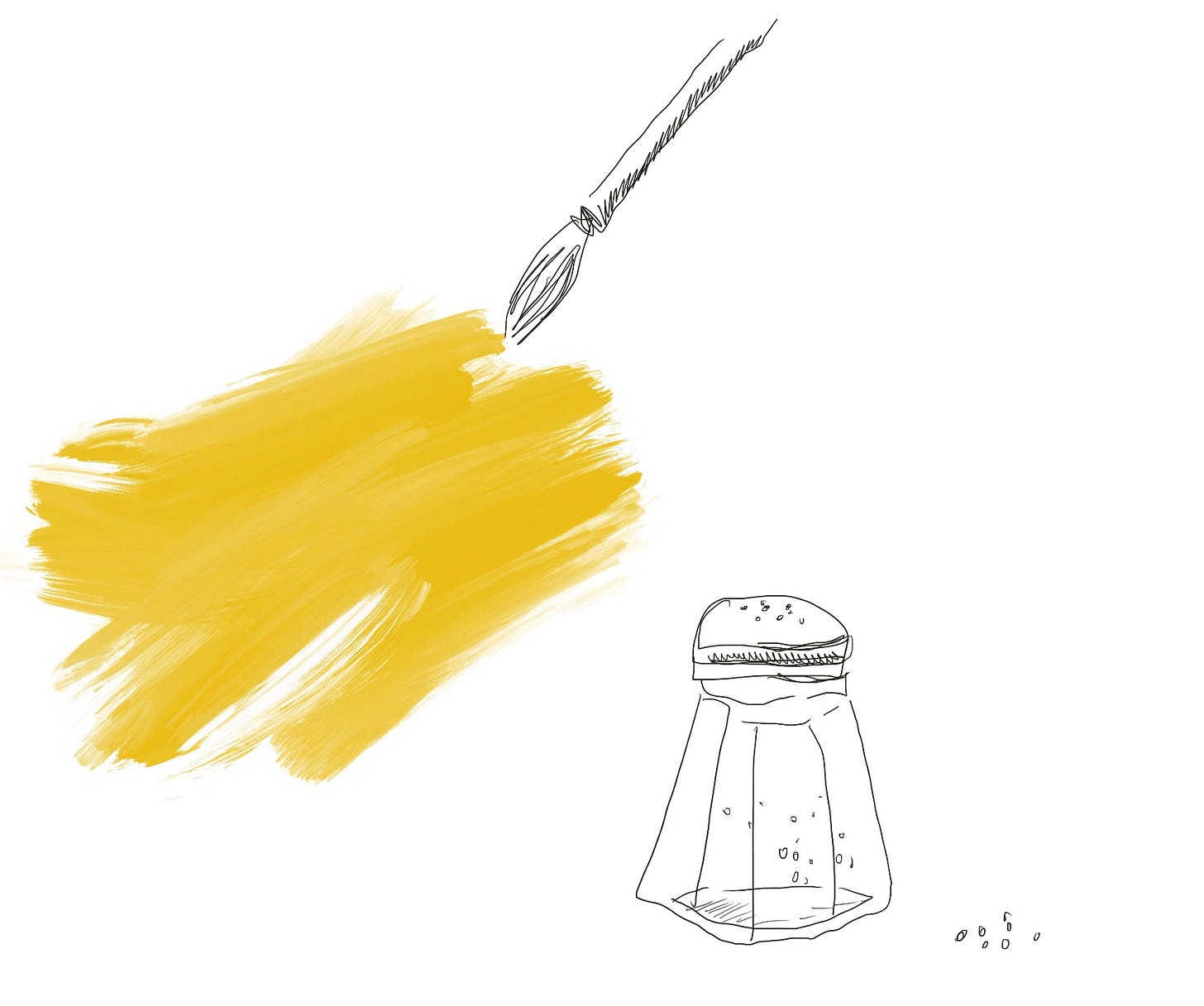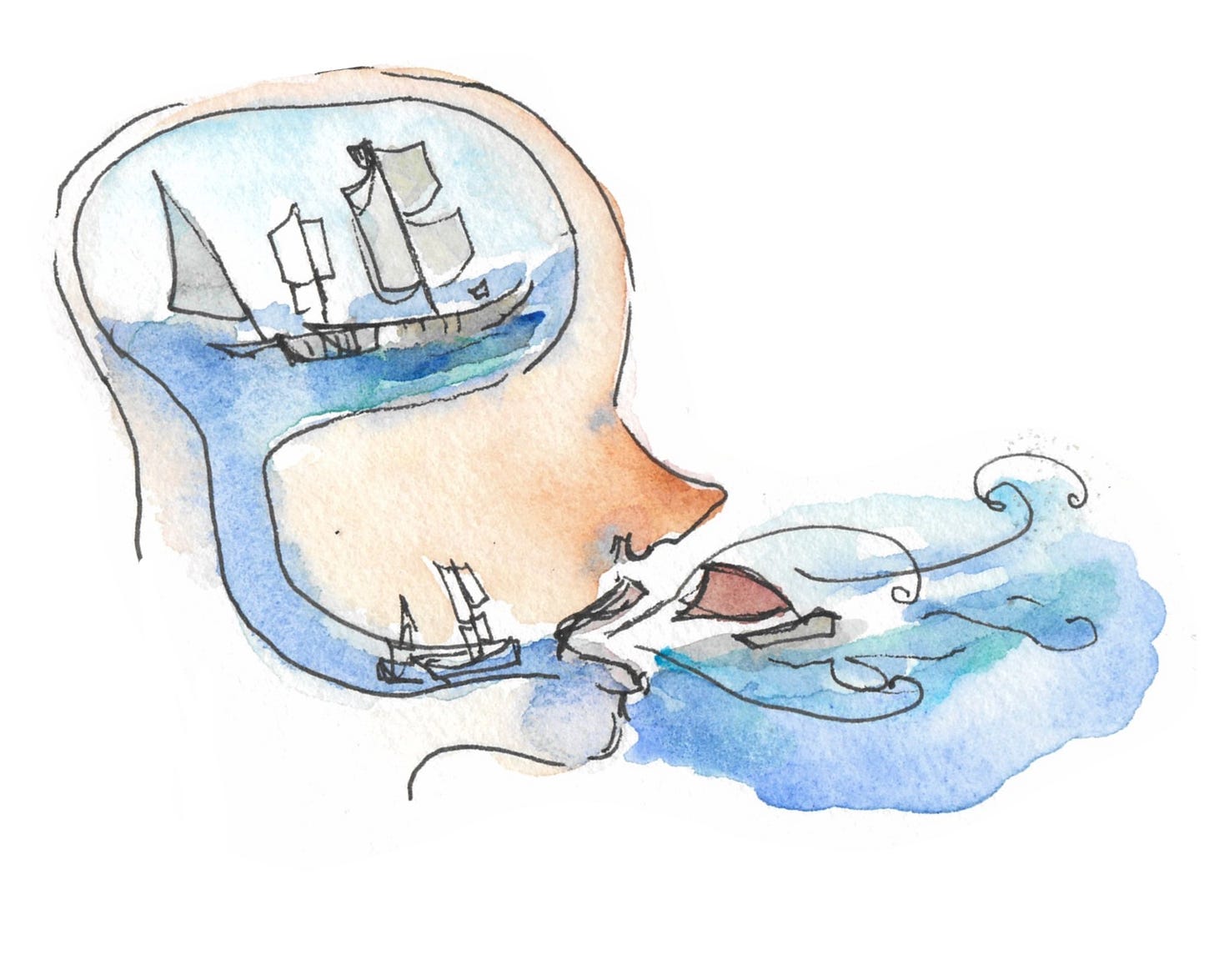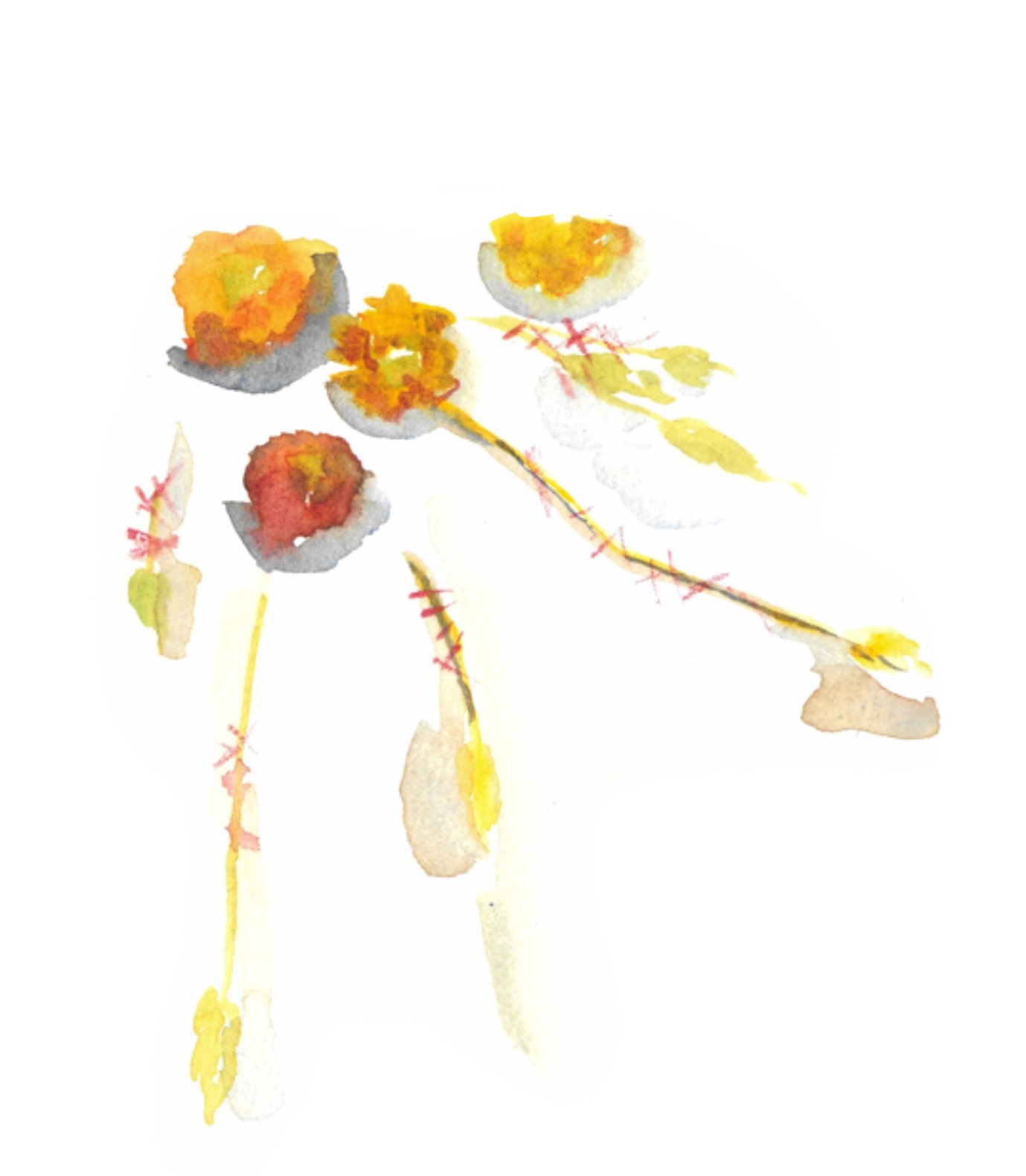The first thing I want to tell you: I've lived most of my adult life in a porous state with people I love. I let everything they feel pass through me. Your emotions are my emotions. My emotions are your emotions. Where do you end, where do I begin? If you are wondering how this feels, imagine you have a cloud for a heart. Imagine you have no hard edges.
The second: when I turned 18, I decided I would no longer feel anger. This is a strange thing to admit because I am someone who likes to feel. I love joy and sadness and navigate a rocky closeness with fear. But anger, I shoved him in a cage and threw away the key. For the last six years, I rarely looked at him. Mostly, I forgot he existed, and he became a mythical thing in my head, this creature that comes to mind about as frequently as the abominable snowman. Why? Anger felt dangerous. I was scared to admit he was real and he lived inside of me. Because growing up, it was painful to experience an adult's anger. I decided I will never be like that, an angry adult. Overall, I did a good job at forgetting.
The third: I have spent 6 years searching for something I could not name. All I know is I had it once, it went missing, and I need it back. Sometimes I would trace the shape of its absence, a cavity between my ribs no one else seems to notice. I begin to believe whatever went missing is actually indispensable, this fundamental ingredient, like yellow ochre for a painter, like salt for a chef. Everything I want to create seemed to require it.
Yes, this is what you should know about me. 6 years ago, I decided to no longer feel anger. Around the same time, I no longer felt like myself. Around the same time, I lost the ability to have boundaries in relationships. It took till now to realize these are three parts of one story. Because recently, I was the angriest I have ever been in my life. And I remember why anger scared me. And I also realized I need it.
In the beginning of November, my friend organized an emotional awareness workshop. This training brought a lot of new ideas into my life, but the most striking was a conscious anger activity called a rage hold. This is a training to release unfinished anger. Two people pin your shoulders back with their whole body weight, as you stand facing a third person across the room. The person across the room is standing in for someone who hurt you deeply: a parent, a sibling, a friend, a boss. And you have two minutes to express your anger, the only restraint being the two people preventing you from physically harming the third. It is a safe, controlled container to feel maximum rage.
Anger. He is no longer the creature I once knew intimately, as a kid, all clenched fists and red cheeks. This time, when I allowed him in it felt like fog dissipating, leaving behind a sharp clear sky. My voice got deeper, louder. I became furious and full of precision.
After the exercise ended and my anger ebbed, the clarity remained. This was new.
I like to pretend I’m a cloud. No edges, no center. A floating, disappearing thing. Because of this, my relationships were full of ambiguity. People sometimes told me they don't know where they stand with me, what I am thinking. This was understandable because I hid a lot. Sometimes I hid how much I cared. When I was upset, I often hid the ways I felt hurt. I was passive and distant instead. I never realized this pattern was related to my unwillingness to feel anger. Looking back though, it’s painfully obvious. I couldn't admit I had boundaries because then I would have to be upset if anyone crossed them. I was so committed to not overreacting, I underreacted constantly. I thought this meant I was in control, but really, my aversion to anger controlled me. By avoiding an emotion, I also had to avoid the circumstances that may conjure it. I avoided having preferences. I avoided emotionally open conversations. I avoided being seen for who I was, a person capable of being hurt.
I also avoided other people's anger. When a friend would come to me angry, I would try to diminish their feelings, soothe them, or distract them. Basically, it was hard to hear them without wanting to change them. I regret this very much now, how I would judge their anger instead of allowing them to feel. In my head, anger was destructive and selfish. I didn't see the opposing truth: what my friends offered me by sharing their anger was an opportunity at deeper connection. They were not asking to be fixed, they were asking to be seen.
We cannot connect with someone completely when we cannot be with all the parts of their being.
This realization surprised me. Anger, expressed with compassion and awareness, builds emotional intimacy—because the undercurrent of anger is care. We would not be angry if we did not care. It is actually beautiful when someone trusts you enough to express themselves honestly, as a mess, and for you to respond with “I feel so lucky right now, to see you like this, this often hidden part of you”.
By sharing what you are angry about, you help someone understand who you are, what actually matters to you.
here's an example. i made a list of things that made me angry this morning
I feel angry because I listened to a few voicenotes from one of my closest friends H, and the whole time he was updating me about moves and visa appointments, and I realize our long-distance friendship is like this, full of logistics, rarely focused on how we feel about all the changes in our life.
I feel angry because there is a homeless woman wrapped in 3 blankets outside my window and I want to help her but I don't know how.
I feel angry at myself for abandoning friendships because I couldn’t communicate what needed to change.
I feel angry that my dad has never been allowed to express sadness and fear, so he spent his whole life angry.
this shows me
I care about having emotional intimacy with H
I care about the homeless woman's pain
I care about being consistent and communicative
I care about my dad's emotional well-being
and i can act
by telling H I want to know how he feels instead of what he is doing
by asking how I can help her meet her needs. By learning about existing projects in SF and seeing how I can contribute
by working on expressing my emotions and my needs as they arise
by holding space for my dad to feel
Without anger, I struggled to find reasons to act. Similar to my reluctance to have boundaries, I also could not care about things fully, because care poses the possibility of anger, if what I care about is threatened.
I thought this ambivalence was a strength, but looking back, all I can see are the beautiful things I refused to take responsibility for.
By forgoing anger, I also gave up my passionate parts, my willing-to-protect-someone-else part, my stupidly brave and rebellious parts. I love those parts and no longer feel like myself without them. They all require some level of anger to drop into. My current (loosely held) belief is: anger, compassion, and love are closely related, we cannot surgically remove one from our emotional lives without hurting the others.
Growing up I thought anger was violent. But it doesn't have to be expressed that way. You can say “hey, I feel angry that you were late, and I notice this pattern arises when we have plans”. Expressing this allows me to know that timeliness is important to you. It's more information than I would have if you pretended my behavior didn’t bother you. I would make an effort to be on time the next time we meet. It would help us build a more complete understanding of each other.
I am trying to be attuned to my emotions the same way I'm attuned to how temperature affects my body. And isn’t that what it is, essentially? Our emotions are a thermometer, an indicator to turn up the heat, put on a sweater, strip a layer. Anger is not a sign something is broken; it is our body trying to acclimate to a change in our environment. It’s expressing a real need for something. Listen to it.
So here we are. The ending of the three-part story goes something like this: the cage is no longer in use. It is the first time my anger has seen daylight in a while. He is a little wobbly still, but I feel him. And I want to remind myself daily that he exists, by reminding myself there are things I care about and want to protect. Things to fight for, things to live for, in these precious decades, in this gorgeous, heartbreaking life. There is a lot of ground ahead. But I have a direction I like, and I want to start walking.








I didn't realize anger might be something I've been missing. I've been running away from anger all my life and I love this perspective on it. Thank you for sharing!
this is one of the best posts i've read on substack, i'm glad i discovered your account!